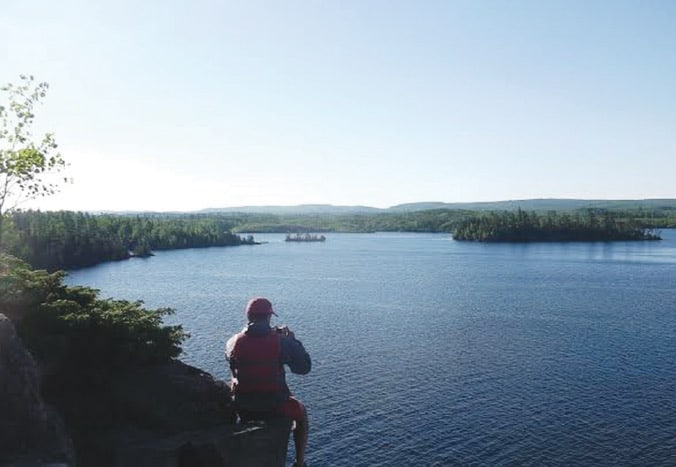
By Adam Maxwell
During the summer of 2013, I spent my time leading wilderness trips for Camp Lincoln in Brainerd, Minnesota. Camp Lincoln is one of the oldest traditional summer camps in Minnesota. It hosts over four hundred campers each season, with campers generally staying at camp for a four week session. Some of the most popular activities at camp are archery, horse riding, fishing and swimming, as well as traditional athletic sports. However, a summer at camp is not complete without a journey into the wilderness; it serves as a means for campers to learn in small groups by challenging themselves and engaging with the natural world. For the oldest group of campers this journey is generally the biggest trek offered by camp, a week long journey into the Boundary Waters Canoe Area Wilderness.
Last summer I added a new challenge to this extended trip by planning one of Camp Lincoln’s longest canoe trips and its first trip across the Boundary Waters from Lake One in Ely, MN to Seagull Lake on the Gunflint Trail. It was an ambitious goal which immediately became more daunting on the first day. The day began with our canoes moving from one shore to the next in an uncontrolled manner and ended as we were chased off the water by an approaching thunderstorm. As we sat under our tarp and cooked dinner it was soon evident to everyone that we were in for a challenging week that would test our limits both as a team and as individuals. During the challenging trip I observed three types of learning. The most easily observed growth in participants was their physical skills such as paddling, navigating and portaging. Although developing these skills are great for youth, the most important learning during a wilderness experience occurs on the personal and group level. The wilderness environment provides an irreplaceable setting for campers to develop closer relationships with each other, as well as more confidence and respect for themselves.
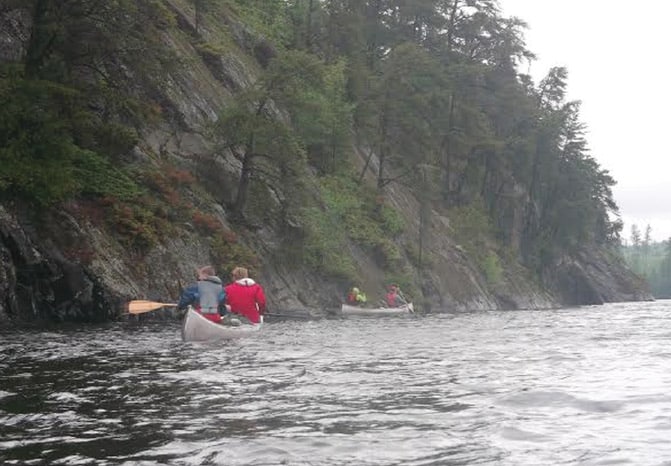
Developing Physical Skills
Within the first two days on trail campers had begun to hone their physical skills while moving across the wilderness. As I continued to teach fundamental canoe strokes our canoes began to move forward without swerving across the lakes. Within the first three days campers had taken over many roles including navigation, fire starting, cooking and setting up camp. As these hard skills grew campers became more comfortable and confident in their environment. Learning these types of skills is a critical and fun part of wilderness travel, however the deeper value of wilderness tripping with youth is the personal skills they gain, which directly relate to life off the trail. Skills learned on trail translate to life beyond the wilderness.
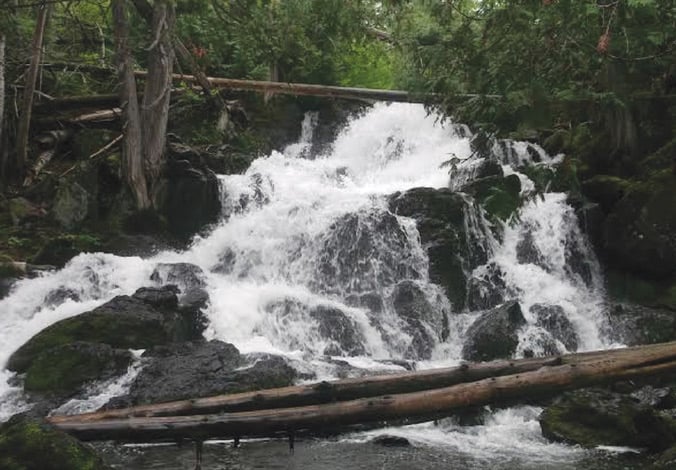
Personal Skills for Life, Built on Trail
Intrapersonal skills are related to one’s self and may include increased confidence, awareness and understanding of values. These skills are often learned and applied on trail, but must be reinforced at camp with discussion to instill meaning. As a trip leader it is important to intentionally facilitate the development of intrapersonal skills, but also understand that some of this learning will occur during personal reflection after the trip has ended. One easy step to take is to have each camper establish a personal and measurable goal each morning and then discuss the outcomes of that goal in the evening. In discussion it is valuable as a leader to ask questions which make campers think deeper into what they have experienced.
One major shift that took place on the fourth day of our trip, occurred when one camper developed the confidence to attempt to portage a canoe by himself. He was the first member of the group to attempt a one man canoe carry and excelled at the task. He made it to the end of the portage with a smile on his face, showing the pride he likely felt in his accomplishment. Throughout the rest of the trip, one by one each camper built the confidence to carry a canoe by themselves over a portage. Although some campers struggled and did not attempt the carry a second time, the important part was the confidence they had built to try something new and out of their comfort zone. This was a prime example of what Camp Lincoln calls personal growth and development or PG & D.
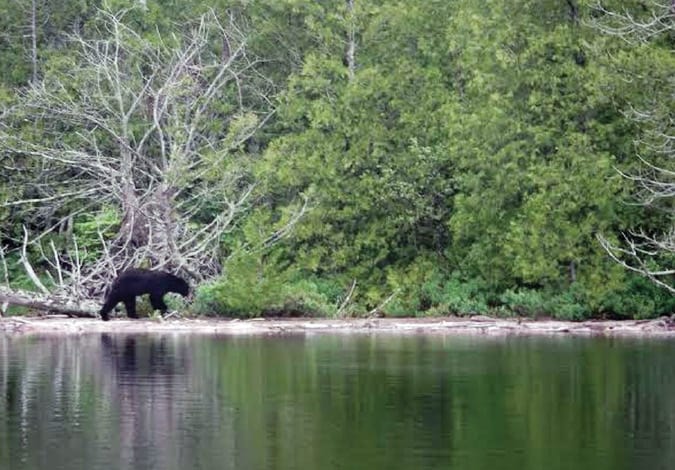
Interpersonal goals are related to how people interact in a group and relate to the people in their lives. Upon the arrival of the first campers at Camp Lincoln I was amazed at the interpersonal skills of many long time returning campers. I noticed a deep connection between campers that were far more inclusive than interactions in many school settings. During our trip across the Boundary Waters many members of the group had already formed relationships with each other over past summers. However, we were fortunate enough to have one participant that was at camp for the first time. He came into the trip as an outsider, but left the trip as an equal member of our team. Introducing a new member to a community of longtime friends can often be easier in a small group wilderness setting with little distractions. The isolation and team challenge involved in a wilderness trip helps individuals to express themselves and groups to form cohesive relationship.
By the end of our long journey campers had completed much more than a fifty mile paddle across the Boundary Waters. Their positive attitudes persevered as bugs swarmed on portage trails and rain fell as we paddled down long stretches of lake, showing great personal growth. Their growth as a group became evident through their teamwork and communication with their canoeing partner and while helping each other load up prior to each portage. In welcoming a new camper into their inner circle of friends they built character and learned how to interact with peers in an inviting way. In the final days of the trip after learning all the key skills needed to travel in canoe country, campers gained leadership skills as I took a step back from my role and allowed others to lead.
Have Fun and Come Back Soon
Perhaps the most important part of leading youth into the wilderness is having fun. In doing so, campers make lasting memories and build an appreciation for the beauty of nature. During our trip a few great memories were watching a bear strut across a portage, laughing into the night around a camp fire and the many fish which found their way from the depths of clear blue waters to the depths of our bellies.
These memories serve the purpose of creating a lasting spark and desire to see more. With the addition of this spark, youth will grow up with a sense of wilderness in their soul. As they grow into adults I hope their spark will lead them on a path of both personal happiness and lifelong learning about that natural world. Furthermore, by placing this spark in young people we are ensuring that the next generation will continue to preserve the Boundary Waters and other beautiful natural places that have become a part of so many of us.
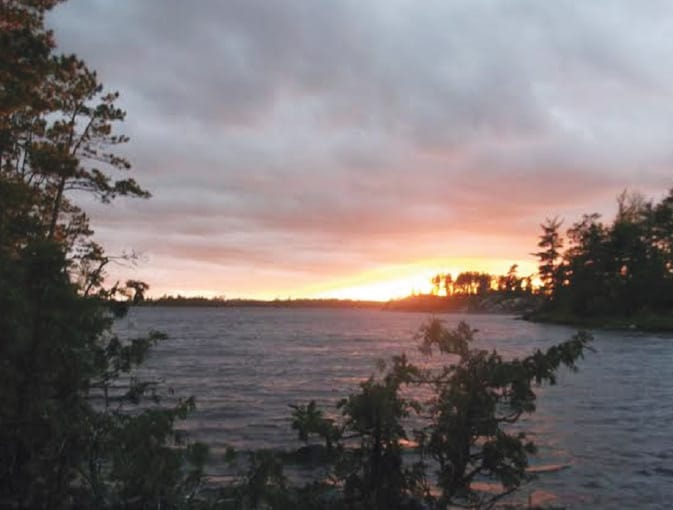
My First Experience at Camp
It took me awhile to get around to spending a summer at camp, but at the ripe age of twenty five I finally had my first experience at camp. At times it was trying and tested my patience, however as I look back I realize everything I took away from the experience. I came into the summer at camp with a lot of experience as a paddler, but not nearly as much as a leader and mentor. While traveling with kids ranging from seven to fifteen years old, I found amazing wonder in wild places. I gained a deeper appreciation for the small things as they were seen through the eyes of a new generation of wilderness travelers. I relished the time we spent watching flies land in pitcher plants and snakes slithering through the grass. I enjoyed watching the excitement in my camper’s eyes grow during my interpretation and stories, but was left wishing I had even more knowledge to share.
If my school work in the Environmental and Outdoor Education program at the University of Minnesota, Duluth had not sold me on the value of experiential education my summer at camp had. It was rewarding to see kids excited to learn about critters, events and places as we observed them. During our trips I would always bring books like The Singing Wilderness by Sigurd Olson to further explain and magnify natural events that we witnessed. Often times the stories would answer many questions, but the spark of curiosity would leave even more. The camper’s curiosity to learn when confronted with real life exciting situations solidified my value of experiential education outside the classroom. Their enthusiasm resonated in me as I realized that each one of them was capable of learning and obtaining information, while having fun and building connections with the people and environment that surrounded them. The combination of hard skills, personal growth and group development learned on our journey, along with the spark of natural curiosity provided the campers a foundation for lifelong adventure and instilled in me the fulfillment of introducing new souls to the wonder of the wilderness.
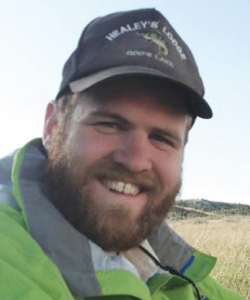
Read more Summer 2014 issue.

